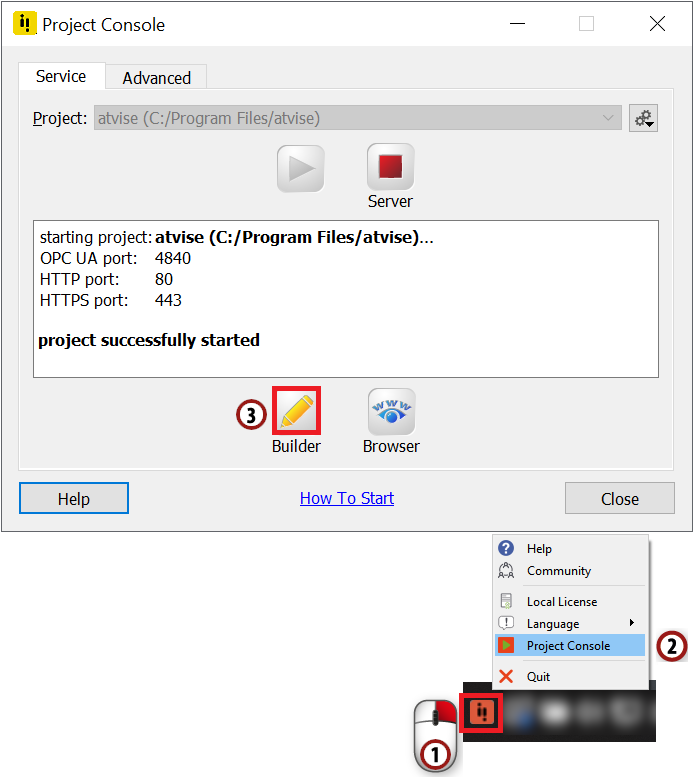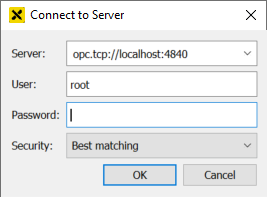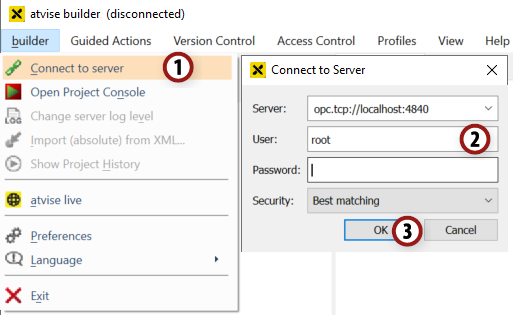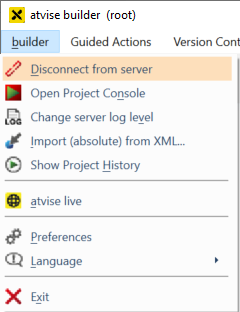2 Start and connect atvise builder¶
The atvise builder is the engineering tool for atvise projects. It allows you to manage data variables, objects, users & groups, displays and many other essential things for your project. One of the main features is the powerful atvise graphics editor included.
2.1 Starting atvise builder
Right-click on the atvise icon in the right corner of the task bar. Open the "Project Console" and click on "Builder" to open the atvise builder.
Hint
You can also choose from your Windows start menu.

Starting atvise builder¶
2.2 Connecting to a server
After starting the atvise builder from the task bar, the following dialog is opened to connect to the OPC UA module of the atvise server on your local machine. The default address is your local host and the default OPC UA port ("opc.tcp://localhost"). In order to connect to the atvise server for the first time, you have to log in with user root and no password.
Hint
root is the default user for every new project. Use the user management to specify a password or create new users with sufficient rights.

Connecting to atvise server¶
If you start the atvise builder via the Windows start menu or if you want to connect to another server, you can do so by following these steps:
Choose from the menu bar.
The connection dialog is opened. Enter the respective user data and the address of the server to which you want to connect (opc.tcp://[host]:[port]).
Hint
You could also enter the address of another server instance, for example, the IP address of a machine in your local network.
Apply the dialog by pressing the OK button to connect your atvise builder to the server.

Connect to server on localhost¶
After connecting to / adding a server, you get asked to choose a default layout.

Choose a default layout¶
Hint
If you want to connect to another server, you first have to disconnect the current session by choosing from the menu bar.

After that, choose again and connect to the new server the same way as described before.
Hint
You can see the currently logged in user as well as the selected server address at the bottom of the atvise builder interface.
